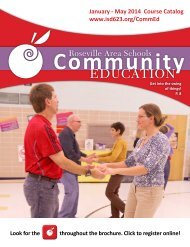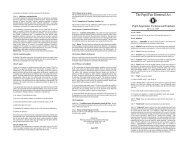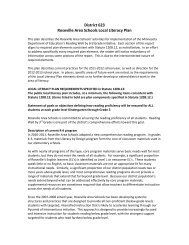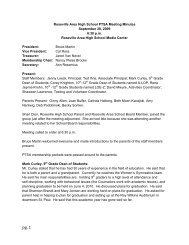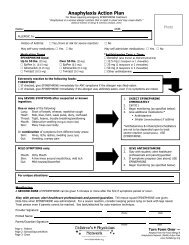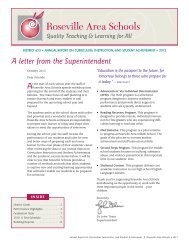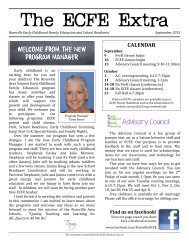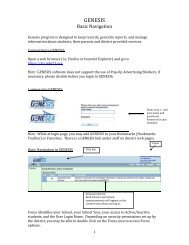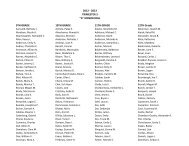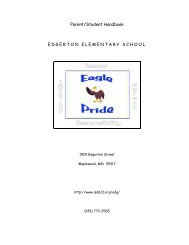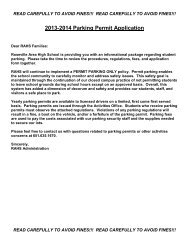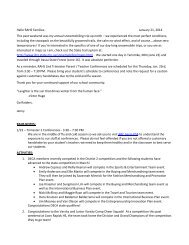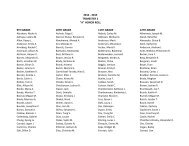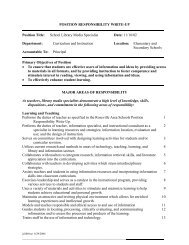Jane Prestebak (jane_prestebak@rdale.k12.mn.us) 8/16/2004 Draft
Jane Prestebak (jane_prestebak@rdale.k12.mn.us) 8/16/2004 Draft
Jane Prestebak (jane_prestebak@rdale.k12.mn.us) 8/16/2004 Draft
Create successful ePaper yourself
Turn your PDF publications into a flip-book with our unique Google optimized e-Paper software.
Y AND<br />
NATURE<br />
OF<br />
SCIENCE<br />
Enterprise<br />
human efforts that both<br />
influence and are influenced<br />
by civilizations and cultures<br />
worldwide.<br />
sources.<br />
I.<br />
HISTOR<br />
Y AND<br />
NATURE<br />
OF<br />
SCIENCE<br />
D. Historic<br />
Perspectiv<br />
es<br />
The student will understand<br />
how scientific discovery,<br />
culture, societal norms and<br />
technology have influenced<br />
one another in different<br />
time periods.<br />
8 1. The student will relate personal experiences in<br />
scientific investigation to the experiences of scientists<br />
throughout history.<br />
2. The student will cite examples of how science and<br />
technology contributed to changes in agriculture,<br />
manufacturing, sanitation, medicine, warfare,<br />
transportation, information<br />
Research<br />
process,<br />
Reading for<br />
information<br />
I.<br />
HISTOR<br />
Y AND<br />
NATURE<br />
OF<br />
SCIENCE<br />
A.<br />
Scientific<br />
World<br />
View<br />
The student will understand<br />
the nature of scientific ways<br />
of thinking and that<br />
scientific knowledge<br />
changes and accumulates<br />
over time.<br />
9-<br />
12<br />
1. The student will be able to distinguish among<br />
hypothesis, theory and law as scientific terms and how<br />
they are <strong>us</strong>ed to answer a specific question.<br />
2. The student will be able to explain how scientific and<br />
technological innovations as well as new evidence can<br />
challenge portions of or entire<br />
accepted theories and models including but not limited to<br />
cell theory, atomic theory, theory of evolution, plate<br />
tectonic theory, germ theory of disease and big bang<br />
theory.<br />
3. The student will recognize that in order to be valid,<br />
scientific knowledge m<strong>us</strong>t meet certain criteria including<br />
that it: be consistent with experimental, observational and<br />
inferential evidence about nature; follow rules of logic<br />
and reporting both methods and procedures; and, be<br />
falsifiable and open to criticism.<br />
4. The student will explain how traditions of ethics, peer<br />
review, conflict and general consens<strong>us</strong> influences the<br />
conduct of science.<br />
Research<br />
process<br />
<strong>Jane</strong> <strong>Prestebak</strong> (<strong>jane</strong>_<strong>prestebak@rdale</strong>.<strong>k12.mn</strong>.<strong>us</strong>) 8/<strong>16</strong>/<strong>2004</strong> <strong>Draft</strong>



